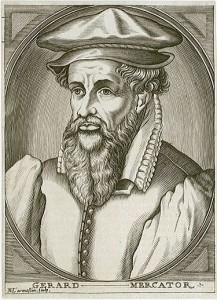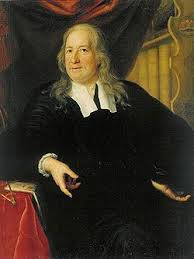David King
Hyperboreans *
The Hyperboreans in Greek mythology lived to the far north of Greece in a land called Hyperborea, which means beyond the North Wind or Boreas, which has been linked by a number of writers with the Atlanteans. Even more exotic is the claim on one loony website that the Hyperboreans were an ancient extraterrestrial race (see end)! (j)
Researchers have variously identified this land of Hyperborea with Iceland, the British Isles, and the North Sea. Like many classical references and later commentators, there is no clear consensus on a precise location. Hecataeus of Abdera, a 4th century BC Greek historian, noted that the Hyperboreans were located “in the lands of the Celts, in the ocean, (where) there is an island no smaller than Sicily.”
Diodorus Siculus described Hyperborea as a northern island with a temple to which the god returns every nineteen years. This was initially thought by many to be a reference to England’s Stonehenge, but the renowned Aubrey Burl considered Stonehenge to be 500 miles too far south and instead proposed the Hebridean island of Lewis home to the famous Callanish megalithic site, which includes the ability to record the return of the stars to the same position every nineteen years(c).
Olof Rudbeck‘s over-enthusiastic nationalism not only brought him to associate Atlantis with Sweden but also linked the writings of Homer and other classical writers with the prehistory of his homeland. This inevitably led him to declare ancient Sweden as Hyperborea. David King outlines how Rudbeck came to this conclusion [530.71].
However, Homer reportedly(h) placed Boreas in Thrace, and therefore Hyperborea, according to him, would be located north of Thrace, in Dacia, modern Romania!
Jürgen Spanuth based his Atlantis theory[0015] on an unambiguous identification of the Atlanteans with the Hyperboreans of the Baltic region, specifically nominating Jutland, part of today’s Denmark, as the land of the Hyperboreans [p.88].
 The renowned Flemish cartographer, Gerardus Mercator (1512-1594), showed a large archipelago near the North Pole on one of his charts. This inclusion by him and other cartographers of the period stemmed from a now-lost book by an English Franciscan friar entitled Inventio Fortunatae (The Discovery of the Fortunate Isle).
The renowned Flemish cartographer, Gerardus Mercator (1512-1594), showed a large archipelago near the North Pole on one of his charts. This inclusion by him and other cartographers of the period stemmed from a now-lost book by an English Franciscan friar entitled Inventio Fortunatae (The Discovery of the Fortunate Isle).
Based on ancient maps and the work of other researchers such as Emilio Spedicato, Stuart L. Harris has proposed(e) that Hyperborea was also known as Atland to the Frisians. He further suggests that this land disappeared in 2194 BC as noted in the controversial Oera Linda Book, and that today’s Faroe Plateau topped by the Faroe Islands are its remnants.
It also appears that in the 18th century, the Russian Empress Catherine II organised an expedition in an attempt to find Hyperborea in the vicinity of the North Pole, in a pathetic attempt to discover ‘the elixir of eternal youth” allegedly invented by the Hyperboreans. She was apparently captivated by the descriptions of the classical writers who related that the Hyperboreans lived in total happiness for a thousand years.
It was reported in 2006(a) that a Russian scientist, Valery Dyemin, inspired by the work of Jean-Sylvain Bailly and William Fairfield Warren was attempting to prove the reality of Hyperborea in the Arctic region. Another Russian, Sergey Teleguin has also attributed a North Pole origin to both the Maya and the Indo-Europeans(b).
J.G. Bennett, a British philosopher, has opted for a Hyperborean origin for the Indo-European culture, a claim that has resonances with the Nazi claim that Hyperborea has been the ancestral home of the ‘master race’. He also supported the idea of an Arctic Hyperborea(i), inspired by the ideas of Bal Gangadar Tilak, although at the same time, he was critical of Warren’s reasoning.
Luciano Chiereghin, who promotes the idea of Atlantis being situated in Italy’s Po Valley, also claims that the same river valley and its plain were also previously known as Hyperborea! The authors of The Three Ages of Atlantis, Marin, Minella and Schievenin, also refer to “the Hyperboreans of the Po Valley” [972.181].
Wikipedia includes some of the more bizarre ideas regarding Hyperborea(h).
“Robert Charroux first related the Hyperboreans to an ancient astronaut race of “reputedly very large, very white people” who had chosen “the least warm area on the earth because it corresponded more closely to their own climate on the planet from which they originated” [766.29]. Miguel Serrano was influenced by Charroux’s writings regarding the Hyperboreans.”
An extensive internet article outlines the mythology associated with Hyperborea and recent efforts to determine its location(d). The Theoi.com website(g) offers a list of all classical references to Hyperborea.
(a) http://english.pravda.r science/mysteries/29-11-2006/85697-paradise u/science/mysteries/29-11-2006/85697-paradise-0/
(b) https://mayanarchaeology.tripod.com/id23.html
(c) A Hyperborean Temple? The Stone Circles of Callanish | Humans Are Free (archive.org) *
(d) Mysterious Hyperborea | Earth Chronicles News (archive.org)
(e) https://www.academia.edu/36044603/Identification_of_Hyperborea_with_Atland_and_Frisland
(f) History, 3a.264. F.7.5.
(g) https://www.theoi.com/Phylos/Hyperborea.html
(h) https://en.wikipedia.org/wiki/Hyperborea
(i) THE HYPERBOREAN ORIGIN OF THE INDO-EUROPEAN CULTURE by J. G. Bennett from SYSTEMATICS I/3
(j) Hyperboreans: An ancient alien race that lived on Earth – Infinity Explorers
Rudbeck, Olof
Olof (Olaus) Rudbeck, (1630-1702), was a 17th century nationalistic writer from Uppsala, Sweden (a very powerful nation at that time). He was a professor of botany and anatomy,  and was one of two discoverers of the lymphatic vessels. He also had an interest in astronomy, taught mining and fortification theory and was Sweden’s first field archaeologist.
and was one of two discoverers of the lymphatic vessels. He also had an interest in astronomy, taught mining and fortification theory and was Sweden’s first field archaeologist.
Olaf published, Atlantica between 1679 and 1702, in Latin and Swedish [1646], , which placed Atlantis, not altogether surprisingly, in Sweden. This was a massive 2500 page work(b), published with the financial help of the Swedish King Carl XI, in which he offered 102 ‘proofs’ to support his thesis. Atlantica included a map showing Uppsala as Atlantis(a). He also contended that Swedish was the root tongue of all languages!
Rudbeck built his Atlantis theory on a number of details, including references to the Icelandic Eddas.
- He assumed that the mythical Swedish king Atle was the original Atlas,
- He linked the Swedish Atlefjell (Atle’s Mountain) with the Atlas Mountains and an old name for Sweden was Atland, which crops up in the Oera Linda Book,
- He cited Sweden’s large copper deposits as one of his proofs of his country’s identity with Plato’s Atlantis.
It is also of interest that Rudbeck was an early proponent of the idea that the ‘years’ referred to by Plato were in fact originally Egyptian ‘lunar cycles’ and concluded that Atlantis was destroyed circa 1500 BC.
Rudbeck also noted that the Greek word ‘nesos’ could mean ‘island’ OR ‘peninsula’, the latter being applicable to Sweden. He argued that the ‘Pillars of Heracles’ was a designation formerly used to refer to a number of locations. Rudbeck claimed that the Øresund strait between Sweden and Denmark was the site of the Atlantis ‘Pillars’.
It should be noted that Rudbeck’s theory was a development of the earlier ideas of another Swede, Johannes Bureus (1568-1652), a runic scholar, also born near Uppsala.
Half a century after Rudbeck’s death, a fellow Swede, Johannes Jacobi Eurenius, wrote Atlantica Orientalis[1320], published in 1751, in which he placed Atlantis in the Holy Land and argued forcefully against Rudbeck’s Swedish location.
*However, another two centuries were ro pass before a comparably comprehensive study of the Atlantis question was undertaken by Ignatius Donnelly. The passage of time has demonstrated both to be heavily flawed.*
In recent years, Gunnar Eriksson, professor emeritus of the History of Science and Ideas at Uppsala University, published the first Swedish biography of Rudbeck. He also compiled a shorter version, in English[529], that looked at Rudbeck’s 17th century ‘proofs’ that Sweden was Plato’s Atlantis. David King of the University of Kentucky has published[530] a further look at this remarkable, if eccentric, individual.
Stephen P. Kershaw has commented[1410.193] that Rudbeck’s Atlantica ”was written while Lutheran Sweden was still coming to terms with the abdication in July 1654 of ‘Queen of the Swedes, Goths and Vandals’, and her conversion to Roman Catholicism. For the Protestant Rudbeck, the Atlantis project was part of an attempt to champion Swedish nationalism, both politically and religiously; annexing Atlantis, which the Catholic/Mediterranean world had so often used to assert its own supremacy, and moving it to Protestant Sweden was an ingenious move.”
A modern review(c) of Rudbeck’s work by Magnus Alkarp, another Swede, has offered a more generous assessment of his methods, finishing with the following comment – “But leaving aside these dreams of Atlantis, we can simply state that Rudbeck’s hypotheses were rarely aimless fragmentary ideas, thrown out at random. On the contrary, when he combines antiquarian observations with topography, local folklore and written sources Rudbeck becomes a figure of genius – even when he is completely wrong.”
Alfred Nobel, the inventor of dynamite and after whom the annual Nobel Prizes are named, was a direct descendant of Rudbeck.
(b) https://www.journals.uchicago.edu/doi/abs/10.1086/358528
>(c) http://magnus.alkarp.se/essay/the-amazing-discovery-of-atlantis/<
